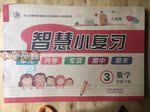题目内容
【题目】请根据句子意思在空白处填写单词,每空一词,注意词形变化。
【1】He was very friendly and had a sense of _________ (幽默).
【2】Jack will _________(代表) our school to attend the meeting.
【3】Please, write down your name, age and _________ (职业).
【4】The boy looked_________(好奇地) at me from time to time.
【5】Charlie Chaplin wrote, _________(导演)and produced the films he starred in.
【6】During this period, those_________(传播) false news should be severly punished.
【7】So far, there is no_________ (令人信服的) evidence that there exists life in outer space .
【8】The brain performs a very important_________ (功能) for it controls the movements of our body.
【9】Over the past half century, using _________ (化学的) fertilizers has become very common in farming.
【10】The Internet gives people the chance to have the information they need_________ (递送) quickly .
【答案】
【1】humour
【2】represent
【3】occupation
【4】curiously
【5】directed
【6】circulating/spreading
【7】convincing
【8】function
【9】chemical
【10】delivered
【解析】
试题分析:根据句子意思在空白处填写单词,每空一词,注意词形变化。
【1】humour 此处是a sense of humour幽默感,故填humour。
【2】represent 句意:杰克将代表学校参加会议。助动词后面用动词原形,故填represent。
【3】occupation 句意:记下你的名字、年龄和职业。此处用名词形式,故填occupation。
【4】curiously 副词修饰动词,故填curiously。
【5】directed 此处是三个并列的谓语动词,故填directed。
【6】circulating/spreading 句意:传播假新闻的人。现在分词作后置定语,故填circulating/spreading。
【7】convincing 形容词修饰名词,故填convincing。
【8】function 句意:大脑实施一个非常重要的功能,因为它控制我们身体的活动。故填function。
【9】chemical 形容词修饰名词,故填chemical。
【10】delivered 句意:让他们需要的信息快速被递送。have +宾语+过去分词,故填delivered。
【名师点拨】
(一)have 有---,让---
1.have +宾语+done
(1)叫、让、请别人做某事,表动作的执行者不是主语也不是宾语而是别人。
例I’ll have my bike repaired this afternoon. 今天下午我要请人修自行车。
(2)遭遇不幸事件
例He had his wallet stolen at the station. 他的钱包在火车站不幸遭窃。
2.have +宾语+do让……做某事,动作执行者为宾语
例He had her go there. 他让她去那儿。
3.have +宾语+doing让……做某事,动作执行者为句子宾语,但动词必须为持续性动词,后面常接时间段。
例He had her standing in the rain for two hours. 他让她在雨中站了两个小时。
4.have +宾语+adj./adv./prep. 促使某一动作发生
例Please have your money ready. 请准备好钱。
(二)make 使……,有轻微强迫之意
1.make +宾语+do,迫使某人做某事,被动语态为be made to do
例The boy made the girl cry.男孩把女孩惹哭了。
2.make+宾语+adj./adv./prep./n.使……处于某种状态
例His illness made him very weak. 他的病使他很虚弱。
3.make +宾语+doing使……处于某种状态,并强调动作的主动性
例The story made him feeling sad.这个故事使他很难受。
4.make +宾语+done使处于某种状态,并强调动作的被动性
例Please speak louder to make yourself heard. 请讲大声一点以便让别人听到你。
(三)leave让,使,带走 既可用于主动语态也可用于被动语态
1.leave +宾语+to do sth.让某人做某事,强调未来动作
例Leave him to do it himself. 让他自个儿去做这件事吧。
2.leave +宾语+doing让某人做某事,强调当时正在发生的动作
例What he said left me thinking deeply.他的话使我陷入了沉思。
3.leave +宾语+done 使……处于某种被动状态,强调动作的被动性
例We can’t leave such an important matter unfinished. 我们不能让这样一件重要的事半途而废。
4.leave+ 宾语+adj./adv./prep.使……处于某一特定状态
例Who left the door open? 谁让门开着?
(四)get使,让
1.get +宾语+to do 让……做某事,强调未来性动作
例He got his brother to help him. 他让他的兄弟帮助他。
2.get +宾语+done让……被做,强调被动性动作
例He got the car started. 他发动了小汽车。
3.get +宾语+doing 让……做某事,强调正在进行的动作
例She got her bike running very fast. 她把自行车骑得飞快。
4.get+宾语+adj./adv./prep.使……发生
例Please get your tickets ready. 请准备好票。

 智慧小复习系列答案
智慧小复习系列答案